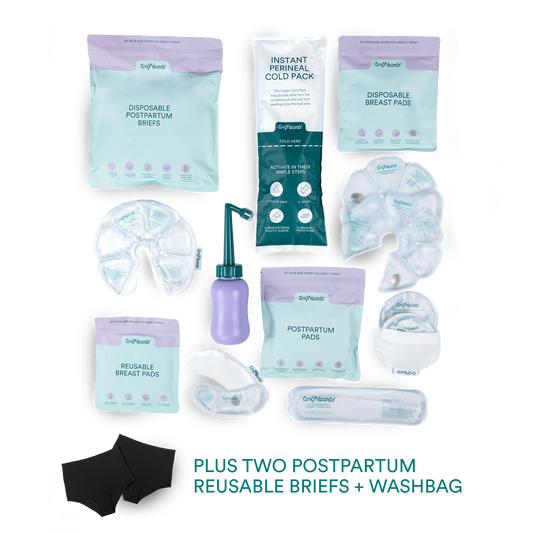If there is one thing I have learned as a parent and am so passionate about empowering others to do, it's advocating for our children.
The traditional way we engaged with healthcare was one that saw us attend, listen and accept, but as the landscape of healthcare transitions, we see a shift in parents being more informed, questioning and working with our trusted healthcare professionals collaboratively to understand and agree on the best options and treatment plan for our little ones.
As parents, we sometimes forget we know these tiny humans best and have so much insight, knowledge and information, and it's imperative to share this with your healthcare team clearly and concisely, so they can get the full picture.
As a paramedic, when a parent would say to me, 'something isn't right,' I would take that as gospel and NEVER leave that child at home. After all, I just met the child and completed basic observations. This parent created, nurtured and has observed them closely and has far greater insight into normal vs abnormal than I do. I'd never underestimate or dismiss that. No one should.
I used many acronyms and tools as a paramedic that I have now adopted, and they regularly pop up in my parenting journey.
Introducing ISBAR. ISBAR stands for Introduction, Situation, Background, Assessment, and Recommendation.
It's a structured way of communicating with healthcare professionals that ensures you cover all the important details without getting sidetracked, flustered or forgetful. ISBAR is especially helpful when you're feeling anxious or overwhelmed. Instead of stumbling through the conversation, you can follow the ISBAR method and feel more confident that you're getting your point across. And it helps healthcare professionals understand your concerns and provide better care for your child.
I used this in wolf's ENT appointment and got complimented on my delivery of the information regarding his situation 🙌🏼
Copy and paste this into the notes app on your phone. When you need to communicate your concerns and what's going on, use this as a structure to make sure you've covered the most important things.
Identity
- Your child's name
- Your child's age
Situation:
- Describe what's is happening with your child right now
- Be specific about when the issues started
- Voice your concerns and why you've brought your child to them
- Explain the treatment have you tried
- Have you given any medication?
Background
- Give a history and background
- Has your child had this before?
- Does your child have other conditions that are relevant to what is happening?
- Has your child had any other major health concerns that could be linked?
Assessment
- Describe the red flags that you've seen?
- What are the signs and symptoms you've seen?
- What things make it better?
- What things make it worse?
Recommendation
- This is your recommendation on what you think would be beneficial to do or test. What would you like the health care professional to do?
Evidence + Questions
- If you have any relevant photos or video evidence input here
- Prepare a list of questions you have for the health professional
Wolf's Example
I used this acronym to guide the appointment with an ENT to advocate for a tonsillectomy for him. I was covering 12 months of information clearly and concisely.
Identify
Wolf, 3.5 years
Situation
- First saw you on Nov 21, mouth breathing after repeat illness referred by a paediatrician for weight concerns.
- Here to chat about tonsillectomy
Background
- Constant issues related to tonsils
- Nasal spray, myfunctional mouth guard = little impact
- No other relevant medical history
- No other concerns apart from his weight, but I think this is related
Assessment
- Excessive drooling, intermittent and when tonsils are enlarged
- Snoring
- Mouth breathing
- Often has puss on tonsils
- Change in foods he will eat, weight concerns (tiny amounts, often)
- Poor sleep habits. Wakes multiple times and tosses and turns all night, not well rested
- Behavioural issues related to being overtired (outbursts, overly sensitive, napping during the day)
- So used to pain and swelling doesn't realise or tell us
- Nasal spray, antibiotics as treatment (every month, for last 3 months)
Recommendation
- I would like him assessed for suitability for a tonsillectomy
Questions
- What is your recommendation?
- Is he the right age for surgery?
- Are there any alternative treatment options we should consider?
- Adenoids + tonsils?
- If surgery is needed, what method do you use?
- Recovery timeframe?
- Risk of bleeding or other serious complications?
- Do you give a pre-med and whats the pain management plan post op?
- What hospital, overnight?
- Cost








